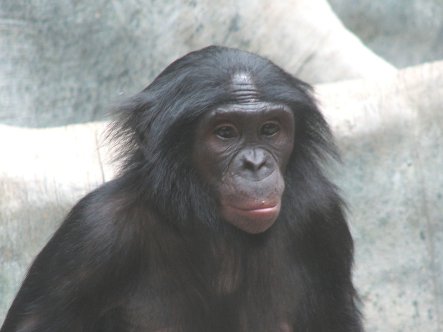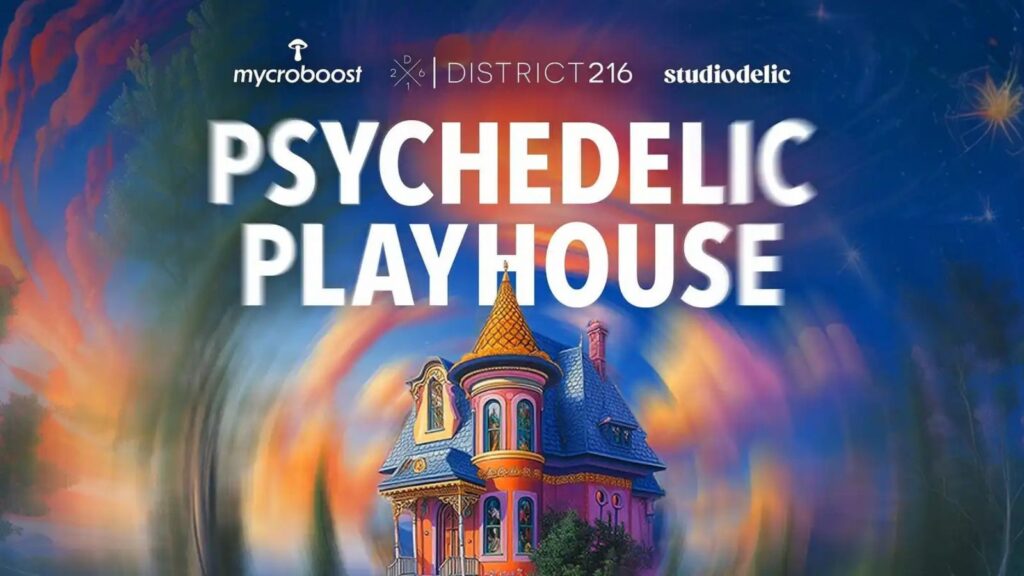"Wynne Paris blends an Eastern heart and a Western head for a great mix." — Krishna Das
Wynne Paris is the creative director of Groovananda, a loose association of musicians, producers and artists who perform rock-and-jazz influenced kirtan. The Sanskrit word kirtan means "to glorify." In yoga circles, kirtan means the singing of mantras — spirtually charged words or phrases, such as Om or Jai Ma — with love and devotion. A Groovananda kirtan may start quietly but soon people are dancing and singing and rocking out. As Wynne likes to say, "Groovananda has one foot on the yoga mat and one hand on a Stratocaster."
At the "Boogie for Bonobos!" benefit at Jivamukti Yoga School on Saturday May 31 that Wynne has organized, Groovananda will be joined by legendary bassist Tony Levin, Devi guitarist (and Reality Sandwich contributor) Debra DeSalvo, jazz clarinetist Perry Robinson, Spin Doctor guitarist Anthony Krizan, drummer Stephen Hund, and singer Joelle Danant. The spiritual energy rises as Wynne leads call-and-response singing with the audience and plays guitar and sarod, a 26-stringed sitar-like Indian instrument.
Wynne got involved with Bonobo Conservation Initiative (BCI), a nonprofit committed to saving the endangered bonobo apes of the Congo, in 1999. Last year he produced the first benefit concert for BCI at Jivamukti as an act of karma yoga, or service. The event was featured in an article in The New Yorker.
This year's concert celebrates the recent realization of a project initiated by BCI, their local partners, and the Democractic Republic of Congo (DRC) government–the Sankura Nature Reserve. This is an 11,000 square mile rainforest reserve–larger than Belgium or Massachusetts–that will protect bonobos and okapi, a rare forest giraffe also found only in the DRC.
Bonobos and people share 98.4% of the same genetic make-up (DNA). Bonobos look more like humans than other apes, and display many behavioral similarities as well. Bonobos have been described as "pansexual" by psychologist Frans de Waal. Sex permeates the fabric of bonobo society, weaving through all aspects of daily life. Besides heterosexual contact, both male and female bonobos engage in same-sex encounters, and even group sex occurs. Unlike other apes, bonobos frequently copulate face-to-face, looking into each others eyes.
In contrast to the competitive, male-dominated culture of their cousins the chimpanzees, bonobos have a peaceful and matriarchal society. Females carry the highest rank, and the sons of ranking females are the leaders among males. Females form close bonds and alliances, which is another way they maintain their power among males, who are larger and stronger physically. When bonobo groups meet in the forest, they greet each other, bond sexually, and share food instead of fighting. Likewise, almost any conflict between bonobos is eased by sexual activity, grooming, or sharing food. Sex in bonobo society transcends reproduction, as it does in humans. It serves as a way of bonding, exchanging energy and sharing pleasure.[1]
Wynne talked to Reality Sandwich about how he got involved with efforts to save the endangered "hippie chimps" of the Congo.
Q: How did you hear about the bonobo apes?
A: I first heard about bonobos when I started playing kirtan — ecstatic chanting concerts — in dance studios, yoga centers and new-age venues. Hip authors like Riane Eisler, who wrote The Chalice and the Blade, tantrikas and yoginis, sex workers and polyamorous Wiccans . . . in these groups the bonobos are revered for their amazing abilities in the area of sex and lovemaking and for their matriarchal culture. The nonviolent bonobos show humans how to make love, not war. I got involved in conservation through Sally Coxe, the president of the Bonobo Conservation Initiative, who I met back in 1995 while she was taking dance classes that featured live musicians.
Q: What did you discover about bonobos when you began helping out with the Bonobo Conservation Initiative?
A: When I started volunteering at the BCI, I learned that the Congo Rainforest, where the bonobos live, was threatened and that bonobos were almost extinct. When the current president of the Democratic Republic of Congo, Joseph Kabila, became the leader of his country, there were multiple wars going on in the Congo. Food distribution was non-existent and everybody ate "bush meat," which included apes and chimps. Millions of people died, and in this country we never even saw a mention on television.
Kabila finally became the acknowledged president of the Congo, but now that the internal wars are mostly over in the country, a lot of powerful interests are pushing for access to heavy logging in the Congo Rainforest, which is the second lung of the earth. So not only is it critical to protect the Congo Rainforest to save the bonobos and other species who call it home, it is critical to save ourselves.
Q: Why are you holding these concerts at Jivamukti Yoga School?
A: I have a huge respect for Jivamukti; they mix spirituality and a sense of activism into their yoga style and are great advocates of animal rights. It seemed like the natural place to present a benefit concert for bonobos. Sharon and David are doing great things for animals; I'm just following their lead.
Q: Of all the causes you could choose to be involved with, why is this one so important to you?
A: The bonobos are a great symbol for so many things that need support in the world — our closest relatives in the ape world are the bonobos and the chimpanzees. Chimpanzees are patriarchal and fight a lot. The bonobos are matriarchal, bisexual and nonviolent. It would be terrible to lose them without having the opportunity to learn what they have to teach humans about co-existing peacefully.
And bonobos are musical! They like to make music; in fact, Tony Levin is involved with the "Boogie for Bonobos" benefit we're putting on at Jivamukti Yoga School because Peter Gabriel turned him onto the experience of jamming with bonobos. I have seen some amazing video footage of bonobo apes playing keyboards with Peter and it's clear that they are listening carefully and are composing melodies in response to the music that Peter plays for them. It's so important that we save these creatures from extinction.
Groovananda's latest single "Tara OM" is a fundraiser for the Bridge Fund and is available on ITunes. Please visit www.groovananda.com for more information.
Contact BCI at www.bonobo.org .
Photo by Vigilant20, courtesy of Creative Commons license.
[1] Information about bonobo society is available at www.bonobo.org .















